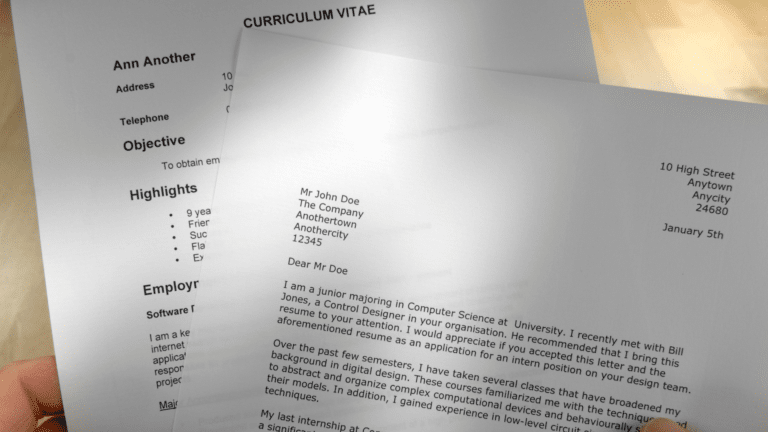No matter how experienced a nurse you are, job interviews can give you a hard time. But if you know what nursing interview questions may pop out, you can ace that dreadful conversation without hassle.
In this article, we’ll provide you with inside information on the most common nurse interview questions and how to answer them.
Let’s dive in!
Key Takeaways
- The top skills that employers look for in a nurse include, but are not limited to, a nursing degree, a registered nurse license, adaptability, flexibility, communication, and leadership skills.
- The best way to answer nursing interview questions is using the STAR method.
- Some of the questions include describing a time when you had to deal with a difficult coworker or patient’s family, as well as when you went above and beyond for the patient.
- Other questions assess how you deal with stress, crises, changes in schedule, and how you translate medical jargon to a layman patient.
- To ace the nursing interview, you should research the organization, prepare the questions for the interviewer, and be as specific as possible.
What Are Employers Looking For in a Nurse?
Employers look for a unique blend of both hard and soft skills in a nurse, as this is a profession that requires a lot of responsibility.
Here are the most sought-after ones:
- A nursing degree—to work as a nurse, you need to obtain either an associate (ADN) or a bachelor’s degree in nursing (BSN).
- A registered nurse (RN) license—all nurses need to get an RN license, which is earned after the completion of the National Council Licensure Examination (NCLEX) for registered nurses.
- Flexibility and adaptability—nurses don’t have a fixed schedule or office hours; their working hours may extensively differ from one month to another.
- Communication and leadership skills—even though not many nurses will have a leadership role in their team or workplace, there will be a lot of urgent situations when they need to take the lead with patients and even other hospital staff.
How to Answer Nursing Interview Questions
We can’t say that there are explicitly right or wrong answers to nurse interview questions; still, some responses are definitely more suitable than others.
One of the best ways to form your answers to these questions is by using the so-called STAR method.
This method prescribes that your responses should follow this structure:
- S for Situation—Recall the situation in which something relevant to the question happened.
- T for Task—Explain the issue or task at hand that needed to be resolved.
- A for Action—Talk about the actions you took to address the issue.
- R for Results—Describe the outcome of your actions in detail.
Coming up with answers following this method may be a challenge, especially if you have little experience and no stories to tell. Still, don’t make anything up, as this might prompt the hiring managers to be extra inquisitive and doubt your abilities.
20+ Nursing Interview Sample Questions and Answers
Here are some of the most common nursing interview questions and answers to them, so check them out:
#1. Describe a time you went above and beyond for a patient.
With this question, a hiring professional wants to discover whether you possess some highly desirable features in nurses—persistence and determination, compassion, selflessness, empathy, and flexibility.
Your answer should focus on a situation where you provided exquisite care and support that made a huge difference to the patient.
Here’s an example:
During my time on the medical-surgical floor, I had a post-surgery patient who felt anxious and lonely. I knew that they were passionate about art, so I brought in art supplies and spent extra time creating artwork with them. I also arranged video calls with their family, who lived out of town, to provide emotional support. This helped alleviate the patient’s anxiety and contributed to their speedy recovery.
#2. Describe a time when you were dealing with a difficult coworker.
Sometimes, it can be a huge challenge not to get into a conflict with people who have specific personality traits. However, in an environment such as a healthcare institution, it’s much more important to leave differences aside and focus on patients.
This question tests precisely this—if you’re able to set priorities and divergences aside. When answering it, try not to badmouth your coworker; instead, highlight how you managed to resolve the conflict.
Here’s how to do it:
I encountered a challenging situation with a coworker during a busy shift in the emergency department. We had a disagreement about the prioritization of patient care tasks, which was affecting the efficiency of our team.
I didn’t want this to escalate into a conflict, so I asked them to have a conversation in private. I listened actively to what they had to share and managed to find a compromise. We eventually managed to improve not only our collaboration but also the quality of patient care.
#3. What do you do when the patient is asking about something you do not know?
It’s impossible to know absolutely everything, and there’s no shame in that. What you should, however, know is how to handle situations when you’re caught off guard and how to look for a solution instantly.
Don’t be afraid to share what you did in such a situation; explain what you did and what steps you took to find the answer.
This is how you can respond to this question:
I do my best to be honest and transparent when a patient asks about something I don’t know. I acknowledge their question and assure them that I will consult with colleagues or refer them to reputable resources. I then promptly research the topic, discuss it with my colleagues, and provide the patient with accurate information.
4. How do you handle changes in schedule/unit?
Flexibility and adaptability are among the most sought-after skills among nurses. This question helps the recruiter determine whether you possess them and how quickly you can respond to changes.
When answering this question, simply explain how you adapt to new circumstances and what helps you do so.
Here’s how you can do it:
I am adaptable and understand that changes in schedule or unit happen in healthcare. Flexibility is key, and I approach all the changes with a positive mindset. Clear communication within the team is my top priority to make sure everyone is informed and can adjust accordingly.
I am focused on delivering quality care, and I’m proactive in seeking assistance or guidance if needed during transitions. Embracing change is part of the dynamic nature of nursing, and I view it as an opportunity to learn and contribute effectively to the team’s goals.
#5. How do you explain medical terms to patients?
Not everyone can understand medical jargon. To the majority of laymen, it may sound like a foreign language. One of your duties as a nurse is to help the patient understand what the doctor is talking about.
With this question, a hiring professional wants to see if you can simplify the complicated medical language and break it down to everyday speech. To give a good answer, explain what you do to help a patient grasp the doctor’s words.
This is an example of a good answer:
When explaining medical terms to patients, I make clear and simple communication a priority. I avoid jargon and use plain language to make sure that the patient understands their condition and treatment plan. I may also use analogies or visual aids, if necessary, to simplify complex concepts.
I encourage questions and take the time to ensure the patient feels comfortable and informed. This way, I strive to encourage patients to actively participate in their care and make informed decisions about their health.
#6. How do you handle high stress/pressure?
Nursing is among the most stressful jobs; there is a lot of pressure and tension that some people can’t cope with. However, as a nurse, you must be able to endure and deal with stressful situations effectively.
This question helps a recruiter or hiring professional assess your capacity to handle stress in a tough working environment. Talk about the healthy coping mechanisms you implement to deal with stress and the activities that help you decompress, as well as how you keep a good work-life balance.
Check out an example:
To handle high stress and pressure, I focus on staying organized, anticipating potential challenges, and prioritizing tasks effectively. I practice mindfulness techniques to remain composed and make informed decisions.
I also believe in the importance of teamwork and effective communication in high-stress circumstances. Collaborating with colleagues, seeking support when needed, and maintaining a positive attitude help me through challenging situations.
#7. Why did you become a nurse?
This is a quite common nursing interview question for freshers who are just starting out.
Not many people are ready to become nurses, given the omnipresent stress and everyday duties. So, when a recruiter pops this question, they don’t want to find out more about your background, as you may think at first glance. Rather, they want to learn what your ambitions are and whether they match their facility.
Don’t try to exaggerate when you’re answering this question, claiming that there isn’t a more humane or empowering profession. Simply explain what attracted you to nursing, but be completely honest.
Here’s an example of a good answer:
I became a nurse because of my genuine passion for helping others and making a positive impact on their lives. I decided to become a nurse after personally experiencing a family member’s illness and seeing the kind of care that nurses provided.
I am drawn to the dynamic and rewarding nature of the profession, where I can contribute to the well-being of individuals and communities. The ability to provide comfort, support, and advocacy aligns with my core values, and I am committed to making a difference in the lives of those in need.
#8. Describe a situation where you disagreed with the doctor and how you handled it.
With this question, a hiring professional wants to assess your professionalism and conflict resolution skills, as well as your ability to maintain a collaborative relationship with doctors. Start by explaining that you always try to overcome the difference, then share the story about how you successfully resolved the disagreement.
This is how you can frame your answer:
There was a situation where the treatment plan the doctor prescribed seemed to overlook certain details about the patient’s condition that I gathered in my assessment. I disagreed with a doctor with respect, and I was committed to voicing my concerns.
I expressed my perspective in a collaborative manner, emphasizing our shared goal of providing the best possible care for the patient. The doctor appreciated the open communication and was willing to reassess the situation. We spent some time working on a revised plan that considered both our perspectives, ensuring the patient received comprehensive and effective care.
#9. How would you handle a crisis (such as an outbreak)?
Crises such as outbreaks, epidemics, or pandemics may not happen very often. However, as a nurse, you should be prepared for the worst-case scenario since such critical situations are part of the job.
This question helps hiring professionals understand whether you’re familiar with safety procedures in times of crisis and if you’re able to manage the heavy workload that might emerge.
A good answer should revolve around your comprehensive knowledge of nursing procedures, collaboration skills, attention to detail, and readiness to stay up-to-date with crisis management practices.
Here’s an example:
In a crisis like an outbreak, I prioritize staying informed, following guidelines, and maintaining open communication with the healthcare team. The key aspects of my approach are sticking to infection control measures, adapting strategies as needed, and providing emotional support to patients. I stay flexible and try to ensure the safety of both the team and patients while contributing to a coordinated response to the crisis.
#10. Describe a situation where the patient’s family was difficult.
In times of distress, emotions may escalate easily. No one likes to see that their loved ones are struggling, and hospitals are certainly not places where people are having a great time.
With such a query, recruiters or hiring professionals are not just assessing your communication and conflict resolution skills. They want to see if you can show understanding and empathy in such distressing situations.
When answering this question, share a story, but make sure that you don’t violate HIPAA guidelines for protecting sensitive patient health information. Even if you did something wrong or made a mistake, acknowledge it and mention how you corrected it.
Check out an example:
Clear communication and empathy are crucial when dealing with a difficult patient’s family. I had a patient whose family expressed frustration and concern about the care plan. I decided to talk with them openly, listened to their concerns, and acknowledged their perspective.
Such an open conversation allowed me to address their worries, provide additional information about the care plan, and involve them in decision-making whenever possible. We ultimately built a more positive relationship, and the family became more confident in the care being provided to their loved one.
#11. How do you respond when people ask you to give them your personal diagnosis outside of a hospital?
A recruiter might pop this query to evaluate your commitment to a patient’s safety along with your professionalism. The best way to respond to it is to say that you always recommend your friends or family to go for an examination or seek medical advice in a clinic or hospital.
Here’s how you can formulate your answer:
When people around me ask for a personal diagnosis outside of a hospital, I emphasize the importance of consulting with a qualified healthcare professional for accurate and tailored medical advice. I explain that providing a diagnosis without a comprehensive assessment can be misleading and potentially harmful.
I express my commitment to their well-being and encourage them to seek proper medical attention to ensure the best and safest care. I believe that such an approach aligns with ethical standards and promotes patient safety and responsible healthcare decision-making.
#12. What do you find most difficult about being a nurse, and how do you overcome it?
Every profession comes with its own specific challenges and difficulties, and nursing is no exception. This question allows a hiring professional to understand what those challenges are for you and how you deal with them.
Be completely honest in your response and share what you find most difficult about your profession. It could be working at specific wards, handling patients of a particular age, or taking charge. Whatever it is, make sure that you mention the steps you take to overcome it.
Check out an example:
One of the challenges I find in nursing is the emotional toll it can take, especially when faced with difficult patient situations. Witnessing pain and suffering can be emotionally challenging.
To overcome this, I prioritize self-care and use different support systems. I make time for reflection, engage in activities outside of work that bring me joy, and participate in peer discussions to share experiences.
These strategies help me maintain emotional resilience and ensure I can continue to provide compassionate and effective care to my patients.
#13. What makes you a good nurse?
The point of possibly one of the most difficult questions is to show what drives you, and this is precisely what a recruiter wants to find out with this query. To respond to it, emphasize the primary reasons you chose this profession, your caring nature, and any special skills you have
Here’s an example:
What makes me a good nurse is a combination of my compassion, adaptability, and commitment to providing patient-centered care. I approach each patient with empathy, recognizing their unique needs and concerns.
My ability to adapt to diverse healthcare situations and willingness to stay updated on industry best practices ensure I can deliver high-quality care. Also, my strong communication skills contribute to effective collaboration within the healthcare team and maintain a positive and supportive environment for both colleagues and patients.
#14. What do you feel you could bring to the nursery regarding special interests and skills?
If you’re applying for work in a nursery, this is one of the nursing interview questions about safeguarding you can expect. It helps a recruiter or hiring professional assess your self-awareness and understanding of the role, and you can contribute positively to the nursery setting.
To answer this question, identify your key skills and connect them with the job. You may want to talk about your enthusiasm, training, interests, and caring personality.
Here’s how to frame your response:
I believe my special interest in pediatric care and my advanced training would contribute significantly to the nursery. My passion for pediatric nursing drives my commitment to delivering high-quality and compassionate care to infants and children.
I am dedicated to continuous learning and staying updated on the latest advancements in pediatric care, which I believe would enhance the overall quality of care provided in the nursery.
Other Questions for Nursing Interview
Here, you can find extra nursing interview questions for both new graduates and experienced registered nurses:
- Why did you leave your previous job?
- What do you think are the most important qualities of a successful nurse?
- What are your strengths and weaknesses as a nurse?
- Tell me about yourself.
- Describe how you manage a busy schedule.
- Where do you see yourself in five years?
- What is your idea of effective patient and family education?
- Why should we hire you?
- How do you like working with a team?
- Why do you want to work here?
Expert Tips on How to Nail Your Nursing Interview
Being familiar with the nursing interview questions and answers is certainly a huge head start. With these tips, however, you’ll leave an even better impression on your interviewer, so their only option will be to offer you a job.
Here they are:
- Research the organization to understand its vision and mission, as well as its values and culture. You may check out not only their social media presence but also ratings and comments from both patients and employees.
- Dress and act professionally for an interview, no matter if it’s video, in-person, or phone. Pay attention to your and the interviewer’s body language. In case you have an online or phone interview, make sure that you’ve secured a quiet place without interruptions.
- Have your resume and references handy in case a hiring professional asks for them during or after an interview.
- Prepare questions for hiring professionals, as this will show that you’re indeed interested in the position and eager to work for the interviewer’s organization. Plus, their answers will give you a more thorough insight into the organization’s values and culture, so you can see if they fit your career goals.
- Be as specific as possible and give real-life examples whenever possible to back up your claims. Also, be honest and genuine; don’t try to extend the truth or pretend to be someone you’re not.
Final Thoughts
Being familiar with the nursing interview questions that may pop up during that stressful conversation may not only help you prepare better but also let you beam with confidence and thus persuade the hiring professional that you’re the right candidate for the role.
And this is why we created this guide—to help you overcome the stage fright or fear of the interview, ace it, and land the job without much hassle!











